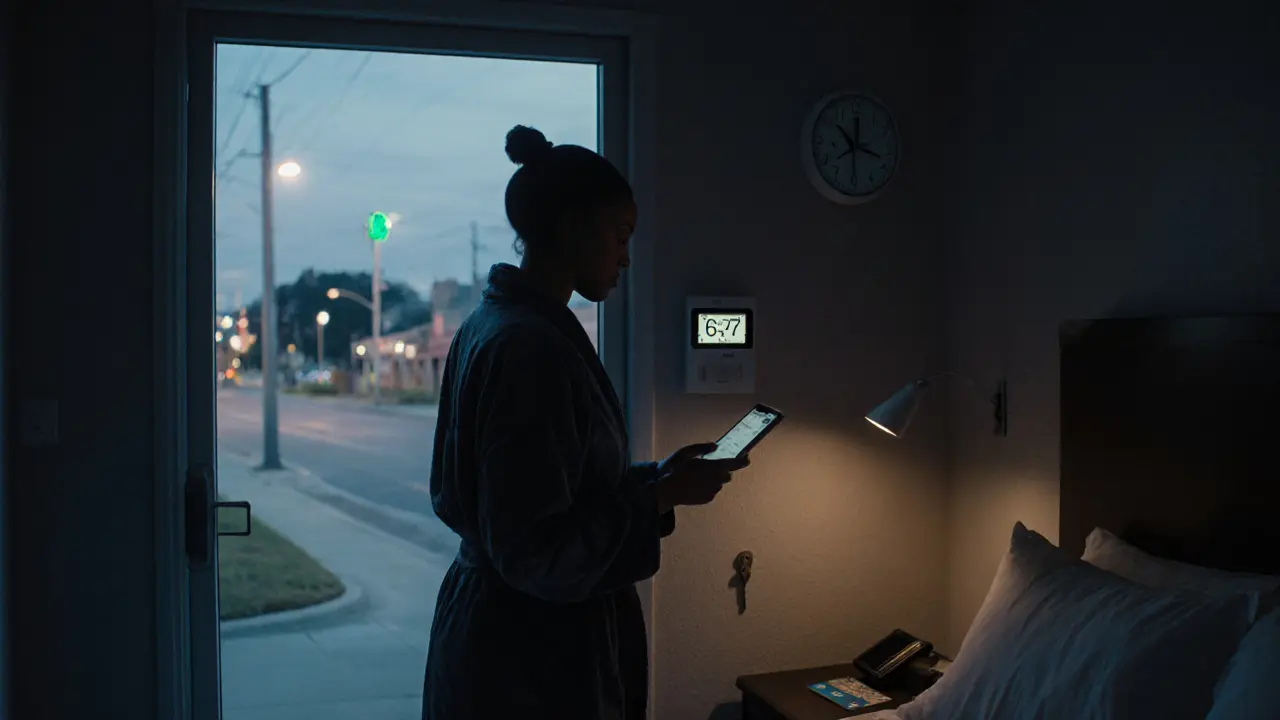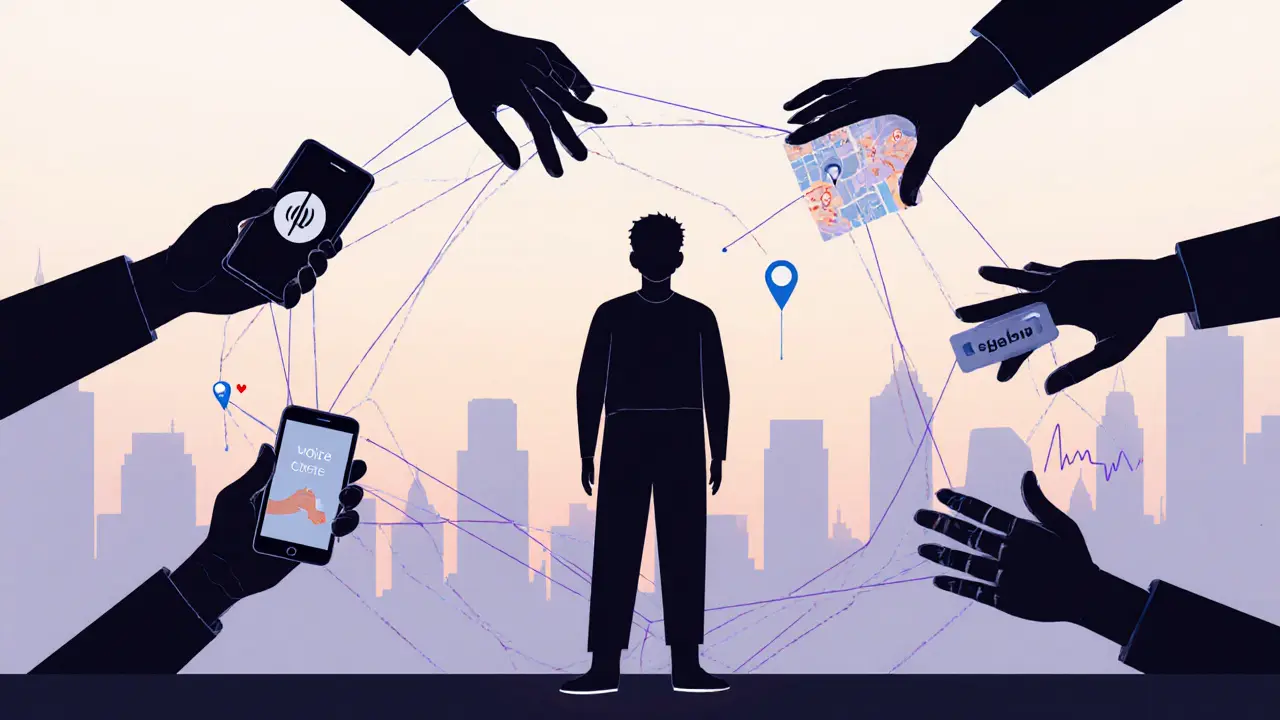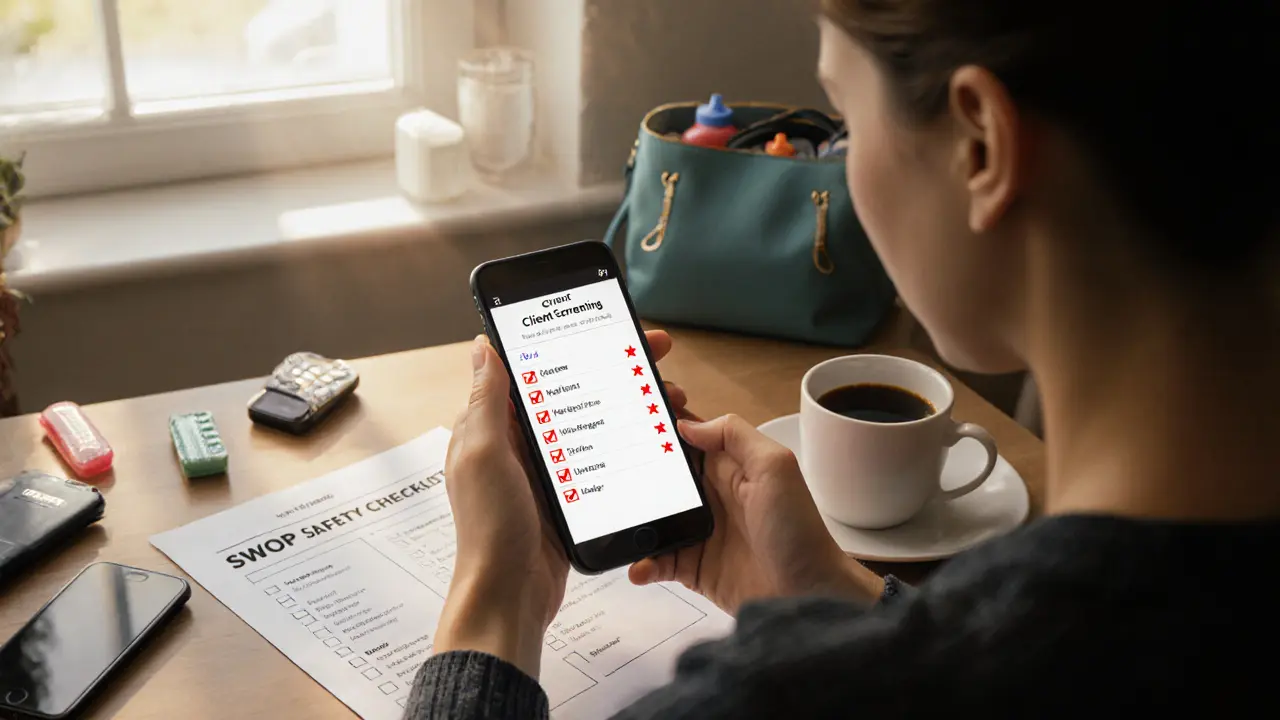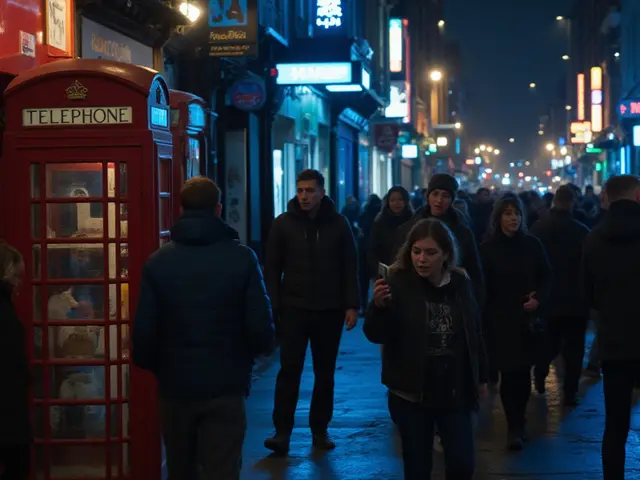Working as a sex worker doesn’t mean you have to accept danger as part of the job. Every day, people in this line of work stay safe-not by luck, but by using clear, tested strategies that put them in control. Safety isn’t about fear. It’s about preparation, boundaries, and knowing exactly what to do before, during, and after a client interaction.
Screening Clients Before You Meet
The first line of defense is screening. Never skip this step, no matter how desperate you are for income or how "normal" someone seems. Start by asking for a photo ID that matches their profile name. A fake name or blurry selfie is a red flag. Use a trusted platform that lets you see past reviews or ratings from other workers. If they refuse to use a platform, or insist on meeting without any digital trail, walk away.
Ask direct questions during initial messaging: "What are you looking for?" "Have you worked with someone like me before?" "Do you have any health checks done recently?" Their answers tell you more than their words. Someone who gives vague answers, gets angry when asked for boundaries, or pressures you to skip safety steps is not worth the risk.
Many workers use a shared screening list-like the one maintained by the Sex Workers Outreach Project (SWOP)-to check names or phone numbers before meeting. These lists are updated daily by real people in the field. Don’t rely on Google searches alone. A name might not show up in public records but still be flagged in worker databases.
Choosing Where and When to Work
Location matters more than you think. Never go to a client’s home unless you’ve vetted the address thoroughly. Use tools like Google Street View to check the building, the neighborhood, and the entrance. Look for signs of neglect, boarded windows, or no visible security cameras. If the place feels off, say no-even if they offer double pay.
Public spaces like hotels are safer than private residences. Book rooms under your own name, not theirs. Use a prepaid card or cash. Avoid chain hotels that require government ID; instead, choose independent motels with 24-hour front desks and security cameras in hallways. Always pick a room on an upper floor, away from stairwells and elevators.
Timing is just as important. Avoid late-night meetings unless you’re working with a trusted regular. Most incidents happen after midnight. Stick to daylight hours or early evenings when possible. If you must work late, have someone check in with you every 30 minutes via text or call.
Using Safety Tools and Tech
Technology is your ally. Download apps like SafetyPin is a free app built by and for sex workers that lets you send a silent alert to trusted contacts if you feel unsafe. It can auto-send your location, a voice recording, and your client’s details with one tap. Other tools like RingAlarm can be used in hotel rooms to trigger loud alarms if someone tries to force entry. Keep your phone charged and always carry a portable charger.
Use encrypted messaging apps like Signal or Telegram-not WhatsApp or SMS. These apps protect your identity and conversations from being tracked or leaked. Never share your real name, address, or phone number with clients. Use burner numbers or virtual numbers through apps like Google Voice.
Record every interaction. Use your phone’s voice memo feature to record the client’s voice before they arrive. Say out loud: "This is [your alias] recording for safety purposes. Today’s date is [date]. Client’s name is [name]. We’re meeting at [location]." Keep these files stored securely on a cloud drive with two-factor authentication turned on.

Setting and Enforcing Boundaries
Your body, your rules. No one gets to change them mid-session. Write down your hard limits before you even meet a client. List services you will and won’t do. Include things like: no unprotected sex, no anal without a condom, no money negotiation during the session, no bringing friends, no alcohol or drugs.
State these limits clearly before the client arrives. Say it like a script: "I don’t do [X]. I don’t do [Y]. If you want those services, I can’t work with you." Don’t apologize. Don’t soften it. People who respect you will accept it. Those who push back? They’re not clients-they’re risks.
If a client tries to violate your boundaries, stop immediately. Don’t argue. Don’t negotiate. Don’t try to reason with them. Get up, get dressed, and leave. Even if you haven’t been paid. Money is replaceable. Your safety isn’t.
Having a Safety Network
You should never work alone. Even if you’re independent, you need someone watching your back. That person doesn’t have to be a partner or friend-they can be another worker you trust. Set up a check-in system. Text them when you arrive, when you leave, and if anything feels off.
Some workers use a "buddy system" where two people work the same area and alert each other if one doesn’t check in. Others join local sex worker collectives that offer peer support, legal advice, and emergency funds. These groups exist in most major cities. Find them through online forums, community centers, or harm reduction organizations like SWOP-USA or Red Umbrella Fund.
If you’re ever threatened, harassed, or assaulted, report it-not just to the police, but to your network. Police aren’t always helpful, but your community can help you document what happened, connect you with legal aid, and warn others. Your voice protects others too.

Protecting Your Mental and Physical Health
Safety isn’t just about avoiding violence. It’s also about staying healthy. Get tested for STIs every three months. Use condoms for every service, every time. Carry extra condoms and lube in your bag. Don’t rely on clients to provide them.
Take care of your mental health too. The work can be isolating. Talk to someone who gets it-a therapist who specializes in sex work, or a peer support group. Many clinics offer free counseling for sex workers. You don’t need insurance. You don’t need to out yourself. Just show up.
Keep a routine. Sleep. Eat. Move your body. Stress and exhaustion make you more vulnerable. When you’re tired, you’re more likely to skip safety steps. Treat your well-being like part of your business plan. It’s not selfish. It’s essential.
What to Do If Something Goes Wrong
Even with all the precautions, things can still go wrong. If you’re robbed, assaulted, or threatened, your first priority is getting to safety. Call a friend, a coworker, or a hotline. Don’t try to handle it alone.
After you’re safe, write down everything you remember: time, location, what happened, what the person looked like, what they said. Don’t delete any messages or recordings. These are evidence.
You have rights. Even if you’re undocumented or working in a legal gray area, you can still report crimes. Many organizations work with law enforcement to protect sex workers’ rights. You don’t have to be a victim. You can be someone who speaks up-and that changes things for others.
Reach out to the National Network of Sex Workers (NNSW) or local harm reduction centers. They can help you access medical care, legal support, housing, or trauma counseling. You’re not alone. And you don’t have to suffer in silence.
Final Thoughts: You Deserve to Be Safe
Being a sex worker doesn’t make you less deserving of safety, respect, or dignity. The risks are real-but so are the tools, the networks, and the strategies that keep people alive and in control. This isn’t about being paranoid. It’s about being smart. It’s about refusing to let fear dictate your life.
Every time you screen a client, set a boundary, use a safety app, or check in with a friend-you’re not just protecting yourself. You’re building a safer system for everyone who comes after you.







